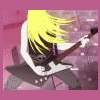-
Our picks
-
Sacred Reich "Awakening"
MacabreEternal posted a blog entry in Album Reviews,
Whichever tier of thrash metal you consigned Sacred Reich back in the 80's/90's they still had their moments. "Ignorance" & "Surf Nicaragura" did a great job of establishing the band, whereas "The American Way" just got a little to comfortable and accessible (the title track grates nowadays) for my ears. A couple more records better left forgotten about and then nothing for twenty three years. 2019 alone has now seen three releases from Phil Rind and co. A live EP, a split EP with Iron Reagan and now a full length.
Notable addition to the ranks for the current throng of releases is former Machine Head sticksman, Dave McClean. Love or hate Machine Head, McClean is a more than capable drummer and his presence here is felt from the off with the opening and title track kicking things off with some real gusto. 'Divide & Conquer' and 'Salvation' muddle along nicely, never quite reaching any quality that would make my balls tingle but comfortable enough. The looming build to 'Manifest Reality' delivers a real punch when the song starts proper. Frenzied riffs and drums with shots of lead work to hold the interest.
There's a problem already though (I know, I am such a fucking mood hoover). I don't like Phil's vocals. I never had if I am being honest. The aggression to them seems a little forced even when they are at their best on tracks like 'Manifest Reality'. When he tries to sing it just feels weak though ('Salvation') and tracks lose real punch. Give him a riffy number such as 'Killing Machine' and he is fine with the Reich engine (probably a poor choice of phrase) up in sixth gear. For every thrashy riff there's a fair share of rock edged, local bar act rhythm aplenty too.
Let's not poo-poo proceedings though, because overall I actually enjoy "Awakening". It is stacked full of catchy riffs that are sticky on the old ears. Whilst not as raw as perhaps the - brilliant - artwork suggests with its black and white, tattoo flash sheet style design it is enjoyable enough. Yes, 'Death Valley' & 'Something to Believe' have no place here, saved only by Arnett and Radziwill's lead work but 'Revolution' is a fucking 80's thrash heyday throwback to the extent that if you turn the TV on during it you might catch a new episode of Cheers!
3/5-
Reputation Points
- 10 replies
-
-
Immortal Bird "Thrive on Neglect"
MacabreEternal posted a blog entry in Album Reviews,
I-
Reputation Points
- 2 replies
-
-
Vltimas 'Something Wicked Marches In'
MacabreEternal posted a blog entry in Album Reviews,
https://www.metalforum.com/blogs/entry/52-vltimas-something-wicked-marches-in/-
Reputation Points
- 3 replies
-
-
Candlemass "The Door to Doom"
MacabreEternal posted a blog entry in Album Reviews,
https://www.metalforum.com/blogs/entry/48-candlemass-the-door-to-doom/
-
Reputation Points
- 2 replies
-
-
Overkill "The Wings of War"
MacabreEternal posted a blog entry in Album Reviews,
Full length number 19 from overkill certainly makes a splash in the energy stakes, I mean there's some modern thrash bands that are a good two decades younger than Overkill who can only hope to achieve the levels of spunk that New Jersey's finest produce here. That in itself is an achievement, for a band of Overkill's stature and reputation to be able to still sound relevant four decades into their career is no mean feat. Even in the albums weaker moments it never gets redundant and the energy levels remain high. There's a real sense of a band in a state of some renewed vigour, helped in no small part by the addition of Jason Bittner on drums. The former Flotsam & Jetsam skinsman is nothing short of superb throughout "The Wings of War" and seems to have squeezed a little extra out of the rest of his peers.
The album kicks of with a great build to opening track "Last Man Standing" and for the first 4 tracks of the album the Overkill crew stomp, bash and groove their way to a solid level of consistency. The lead work is of particular note and Blitz sounds as sneery and scathing as ever. The album is well produced and mixed too with all parts of the thrash machine audible as the five piece hammer away at your skull with the usual blend of chugging riffs and infectious anthems.
There are weak moments as mentioned but they are more a victim of how good the strong tracks are. In it's own right "Distortion" is a solid enough - if not slightly varied a journey from the last offering - but it just doesn't stand up well against a "Bat Shit Crazy" or a "Head of a Pin". As the album draws to a close you get the increasing impression that the last few tracks are rescued really by some great solos and stomping skin work which is a shame because trimming of a couple of tracks may have made this less obvious.
4/5-
Reputation Points
- 4 replies
-
-




Recommended Posts
Join the conversation
You can post now and register later. If you have an account, sign in now to post with your account.